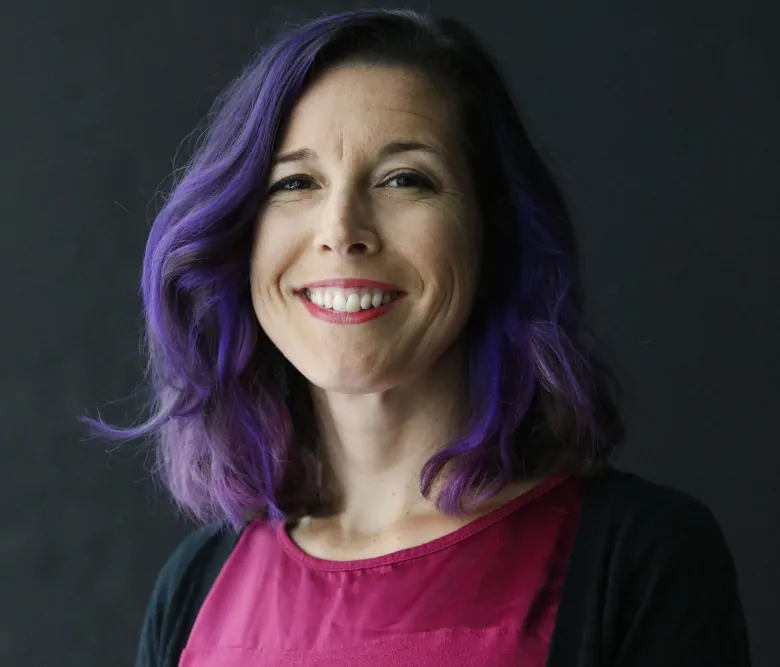The end of anonymity? Facial recognition app used by police raises serious concerns, say privacy advocates

A secretive facial recognition software used by hundreds of police forces is raising concerns after a New York Times investigation said it could “end privacy as we know it.”
Clearview A.I. has extracted more than three billion photos from public web sites like Facebook, Instagram, employment sites and others, and used them to create a database used by more than 600 law enforcement agencies in the U.S., Canada and elsewhere, according to Times reporter Kashmir Hill.
“It is being used to solve many murder cases, identity fraud cases, child exploitation cases,” Hill told The Current’s host Matt Galloway.
Police officers who spoke to Hill said the app was a far more powerful tool for cracking cases than any government database they had used before. The company claims their software finds a match in three out of four cases.
The software is so effective, Hill said, that even when she covered her face and mouth for a photo, it still pulled up seven images of her.
“I was just shocked at how well this face recognition algorithm works,” she said.
The end of anonymity?
Hill said investors and police officers she interviewed expect this software, or another similar technology, to be available to the public within the next five years.
“If you were in a restaurant having a sensitive conversation about family secrets or work secrets, a stranger next to you could snap your photo and know who you are, and understand that conversation in context,” she said.
What you lose, if this technology gets out into the wild, is the possibility of any anonymity in public ever.– Brenda McPhail, Canadian Civil Liberties Association
“You can imagine stalkers using this tool — just really malicious use cases.”
The potential uses for this kind of software is ringing alarm bells for privacy advocates.
“What you lose, if this technology gets out into the wild, is the possibility of any anonymity in public ever. That’s something that we need to think about,” said Brenda McPhail, director of the Canadian Civil Liberties Association’s Privacy Technology and Surveillance Project.
McPhail said this kind of facial recognition technology could also make it easier for governments to monitor protesters.
“It’s a threat to the fundamental freedoms that we value in a democracy,” she said.
A secretive company
When Hill started looking into Clearview, she initially came up against a lot of dead ends.
Its website was only accessible to law enforcement, and their listed New York address led her to a building that didn’t exist. For a long time, the company declined to speak to her.
But they did find her.
While interviewing police officers about the app, she would ask them to scan a photo of her, to see how the software worked.
“The police officers would then get a call from the company saying, ‘Are you talking to the media?’ So they were actually tracking who was talking to me while they weren’t talking to me,” she said.
“So I found that a bit disturbing.”
Clearview was founded by Hoan Ton-That, an Australian techie and onetime model, and Richard Schwartz, a former aide to Rudy Giuliani when Giuliani was mayor of New York. It is backed by Peter Thiel, an early investor in Facebook and Palantir. <a href=”https://t.co/ALE12Z0LkH”>pic.twitter.com/ALE12Z0LkH</a>
—@nytimes
Hill said that Clearview’s secrecy, and their willingness to use their software to track a reporter, raised concerns about police departments’ willingness to share sensitive information about suspects and victims with the little-known company.
“Most of the departments had done no vetting of them … and the company has this vast database of everyone that the police department is interested in,” she said.
Reported use by Canadian law enforcement
McPhail said she was also concerned by allegations in Hill’s story that Canadian police forces are using Clearview A.I.’s software.
“The way the data is collected is probably against Canadian law,” said McPhail.
“We’ve got law enforcement agencies using it without confirming that the use of the tool is compliant with Canadian law. That’s a big problem.”
Hill interviewed Canadian police officers about the app on condition of anonymity, so The Current reached out to several police forces across the country.
The Vancouver Police Department said it has never used the software and has no intention of doing so. The Toronto Police Service says it does use facial recognition, but not through Clearview A.I.
We’re deluding ourselves if we think that we have any privacy whatsoever.– Michael Arntfield
Ontario Provincial Police say they have used facial recognition technology, but wouldn’t specify which products they use.
“Generally, the RCMP does not comment on specific investigative tools or techniques,” an RCMP representative said in a statement.
The Current also requested comment from Clearview A.I. but did not receive a response.
In the public interest
Michael Arntfield, a Canadian criminologist and former police officer, believes concerns about the technology are overblown.
“The upsides far outweigh the downsides and are in the public interest, quite frankly,” he said.
He believes the amount of information Clearview can glean from even billions of images pales in comparison to the “troves” of personal data gathered and sold to advertisers by companies like Google and Facebook.
“We’re deluding ourselves if we think that we have any privacy whatsoever,” he said.
“Now we can actually use this [technology] for a productive purpose, for a public safety purpose … why is the alarm being sounded now?”
Written by Allie Jaynes. Produced by Ines Colabrese, Ben Jamieson and Joana Dragichi.





